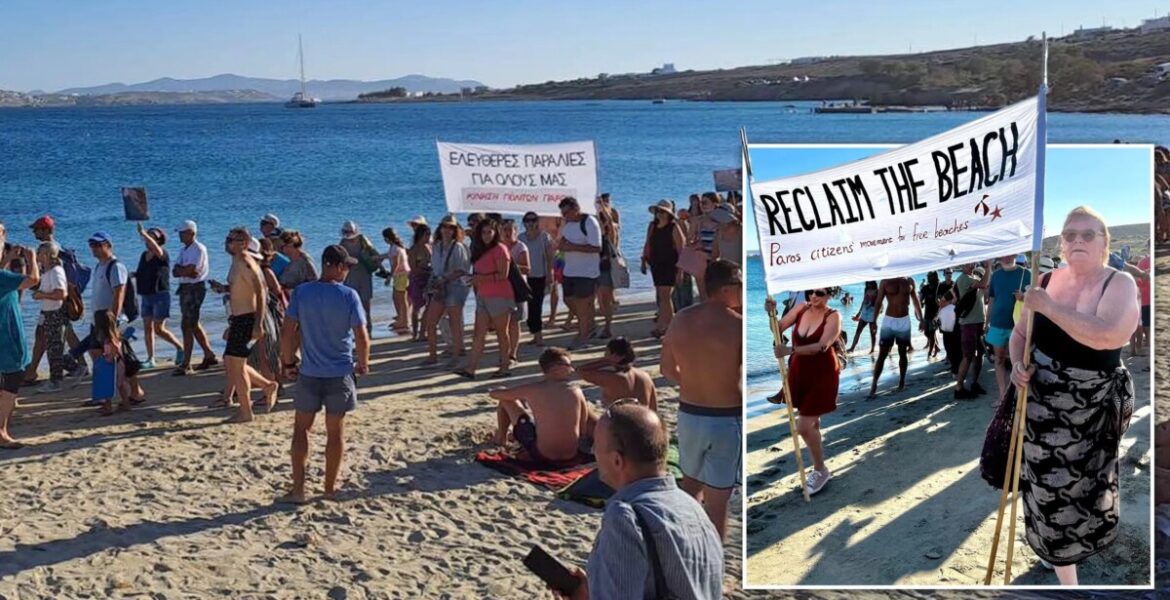The press spokesperson for the main opposition SYRIZA-Progressive Alliance has lambasted the ruling New Democracy government and called for "lawlessness on the beaches" to come to an end, offering support for the so-called towel movement.
"Lawlessness on the beaches must come to an end. While the movement for free beaches spreads and gains daily victories, reports of the violent exclusion of citizens continue," said Stergios Kalpakis said in a Facebook post on Monday
Kalpakis also referred to a report by MEGA television on Monday that an elderly couple aged 74 and 70 had been physically assaulted by managers of a beach bar in the Halkidiki region for sitting on the beach next to the sunbeds for hire.
"The immediate intervention of all the competent authorities is imperative," Kalpakis said, adding that the New Democracy government "must finally assume its responsibilities" and that the state must function and protect citizens from the bullies."
A protest movement that began on the Greek island of Rhodes has spread to the north of the country, with activists of the so-called ‘Towel Movement’ protesting in Chalkidiki to restore full public access to Greece’s beaches.
Greeks are increasingly frustrated by the takeover of large stretches of coastline by private businesses that illegally restrict access to beaches and frequently charge exorbitant sums for the rent of sunbeds.
On Sunday, residents of Nikiti and Nea Potidea in Chalkidiki chanted ‘the coast belongs to the people’ and ‘every beach will be free’.
Scheduling a new protest, organisers declared, ‘We claim our rights, we defend public spaces’.
The Towel Movement began in June on the island of Rhodes. It spread to the island of Paros, where residents measured the area of beach occupied by parasols and documented its expansion despite a lack of permits in many cases. Naxos, Crete and Attica followed.
Greek law does not recognise private beaches. However, according to a report by Greece’s public broadcaster, some 80 per cent of Crete’s Falasarna beach – considered one of the most beautiful in the world and part of the Natura 2000 network of protected areas – has effectively been fenced off by private businesses operating without permits.
The fines they face amount to roughly half a day’s takings, which critics say is far too low to act as a deterrent.
In May, Greece’s Supreme Court sent a memo to prosecutors reiterating that it remains illegal to block access to public beaches and that those who violate the rules should be sanctioned.
READ MORE: Scorpios: Mykonos beach club denies entry to woman for being "too fat."


